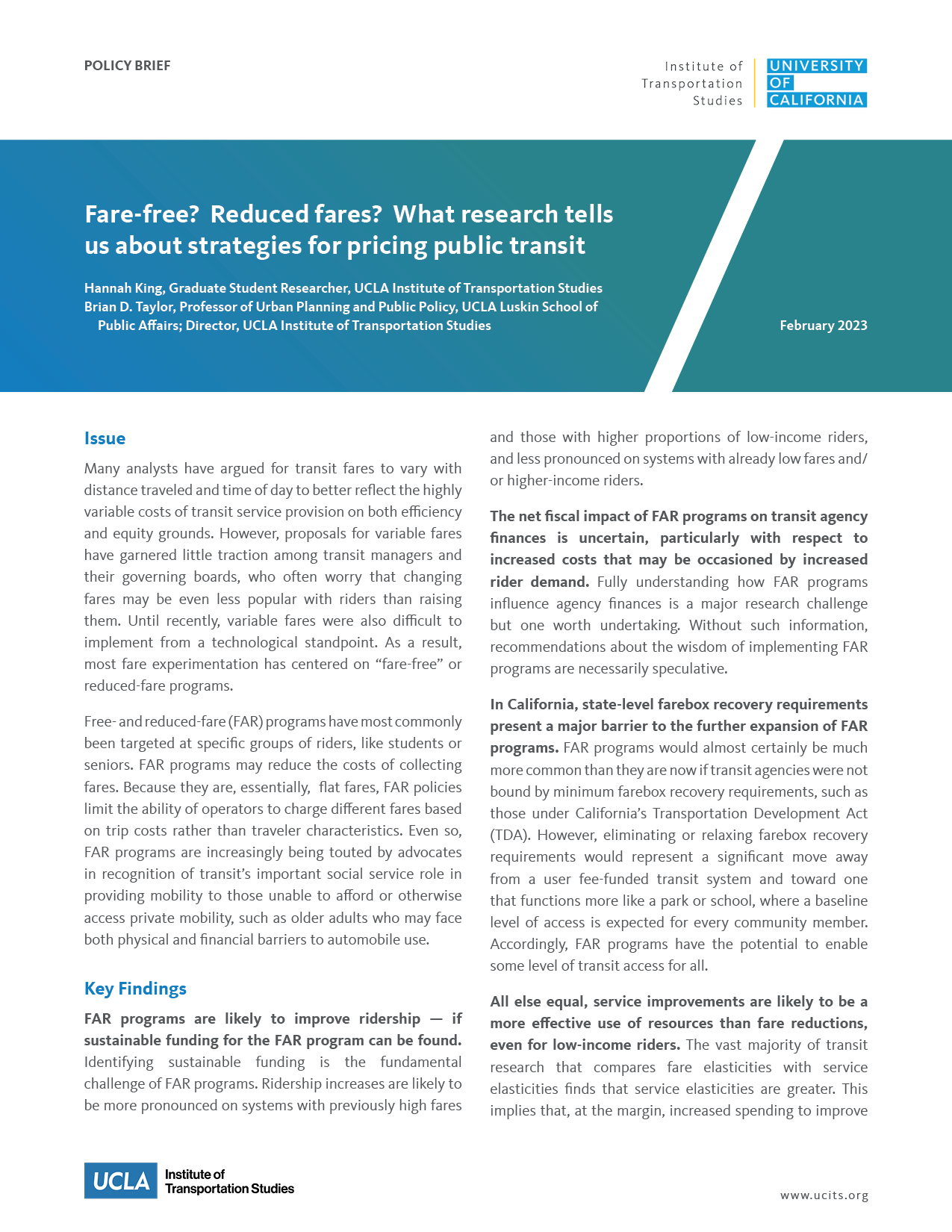Date: February 1, 2023
Author(s): Hannah King, Brian D. Taylor
Abstract
Many analysts have argued for transit fares to vary with distance traveled and time of day to better reflect the highly variable costs of transit service provision on both efficiency and equity grounds. However, proposals for variable fares have garnered little traction among transit managers and their governing boards, who often worry that changing fares may be even less popular with riders than raising them. Until recently, variable fares were also difficult to implement from a technological standpoint. As a result, most fare experimentation has centered on “fare-free” or reduced-fare programs.
About the Project
Growing public interest in fare-free transit demands an assessment of fare-free and/or reduced transit fare programs, particularly how these programs may benefit disadvantaged communities, both urban and rural. Fare policy equity entials decisions about the similarities and differences in treatment afforded to various constituent groups. It also involves decisions about the extent to which travelers are expected to pay for the costs of serving their travel demand. This is of particular concern with regard to low-income, largely non-White, travelers, who are both disproportionately likely to use transit and to be burdened by the monetary costs of transit use. Given the foregoing, there is rising popular and scholarly interest in making public transit systems “fare-free.” Accordingly, in this research we will carefully review and synthesize the current states of both the practice of and research literature on fare-free transit. We will focus our review on the various dimensions of equity raised by charging for transit fares, and how they have/are likely to play out with conversion to fare-free transit service.


